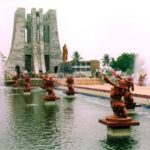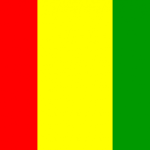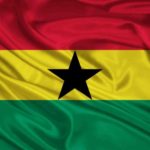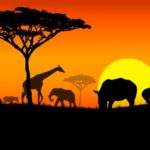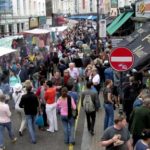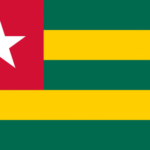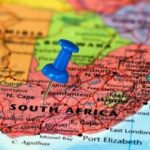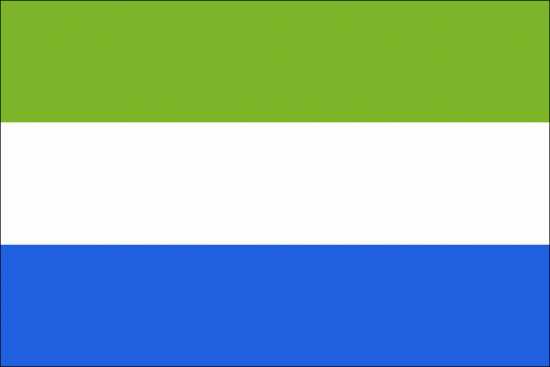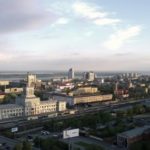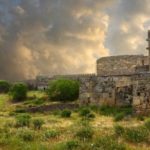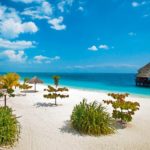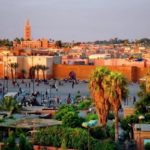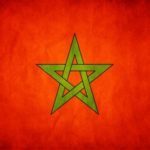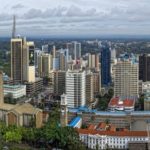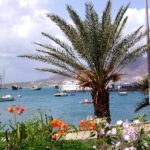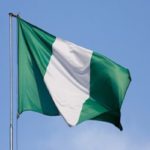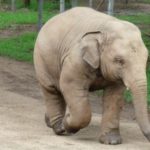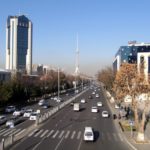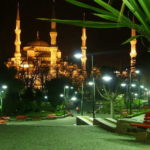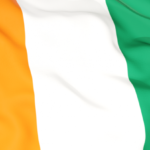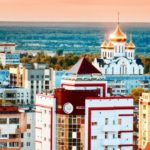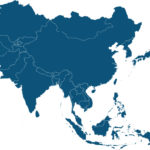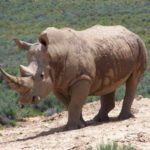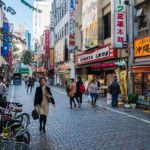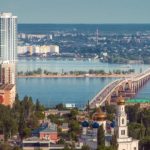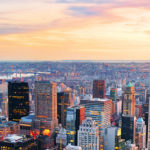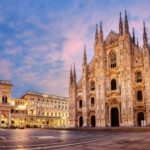Interesting facts about African countries
 About a hundred kilometers north of Accra, Ashanti is a once separate country, today part of Ghana. Its capital was Kumashi. This is the city where to this day the largest foreign market in West Africa is located – Kadzhetiia (50 000 shops, stands and counters). Trade in Kumashi developed many centuries ago, when the city was a major center for gold trade. Today you can buy various jewelry and local products here.
About a hundred kilometers north of Accra, Ashanti is a once separate country, today part of Ghana. Its capital was Kumashi. This is the city where to this day the largest foreign market in West Africa is located – Kadzhetiia (50 000 shops, stands and counters). Trade in Kumashi developed many centuries ago, when the city was a major center for gold trade. Today you can buy various jewelry and local products here.
In 1982, the Great Mosque was opened in Guinea, in Conakry. It is the fourth largest mosque in all of Africa and the largest in the entire sub-Saharan region. Inside the temple there are 12,500 seats – 10,000 for men in the main hall and 2.5 thousand for women. In addition, on the esplanade in front of the mosque, there may be another 12,500 people. The mosque may be destroyed. Lack of maintenance, running water and electricity are the main problems that could not be resolved even as a result of a significant infusion of funds from Saudi Arabia in 2003.
The people of Guinea-Bissau love football. SC “Bissau” appears quite regularly on the continental arena and feels rather well. The match between the sports club Bissau and SB Benfica from the same city is the most important opposition of the local championship. The similarity of the names with the teams from Lisbon is not accidental. For a long time, the country was ruled by the Portuguese, and Portuguese is still the official language in Bissau.
Located in equatorial Guinea, Monte Alain National Park is teeming with wildlife. There you can meet elephants, chimpanzees, gorillas, as well as the largest frog in the world. Goliath the fearful is the champion among all terrestrial amphibians. Its height reaches 30 cm in length, and its mass is 3 kg. It is known not only for its size, but also for its delicious meat, thanks to which this species is now under threat of extinction.
Cameroon is one of the wettest countries in the world. Debundsch Village, located in its southwestern part, is one of the five rainy places on Earth. Here 10,299 mm of precipitation falls annually.
Coffee bean is one of Kenya’s most important export products. Meanwhile, the coffee culture in Kenya is starting to spread only now. Until recently, it was believed that coffee is so valuable that it needs to be sold only abroad, and drinking it on the spot is a waste of time. Therefore, most Kenyans are much more likely to drink tea.
Comoros delight with its picturesque beaches, crystal clear waters, fine sand and nature. Unlike many places of a similar nature, the Comoros are not crowded with tourists. This is the fault of the country’s very unstable past (more than twenty coups since independence in 1975). Recently, however, the situation has improved significantly, and perhaps this is the last moment when you can see the Comoros before a wave of foreign tourists flood them.
Nouabale Ndoki National Park in Congo was named the last Eden on Earth by members of the National Geographic Expedition in 1990. The largest predators, the largest herbivores, rare monkeys, the deepest river in the world untouched by nature – all this makes the north of the Congo a truly unique area.
While in Lesotho, you can look down on everything around you. It is the only country in the world located completely above 1000 m above sea level. The lowest point is located at the confluence of the Oranje and Mahaleng rivers and lies at an altitude of 1400 m above sea level.
George Weah was born and raised in slums in the suburbs of Monrovia, the capital of Liberia. In 1995, he became the FIFA footballer of the year, won the Golden Ball and was recognized as the best striker in African history. Weah played in Monaco, Milan, Chelsea and Manchester City. After the end of his sports career, he took up humanitarian and political activities. Since January 22, 2018, he has been President of Liberia. Nelson Mandela himself once called him the Pride of Africa.
Muslims make up almost 97% of the population of Libya. Before the invasion of Muslims in the 7th century A.D. Libya was mostly Christian. A Libyan by birth was, for example, Shimon Kirenyychik – a passerby who helped Jesus carry the cross. He came from Cyrene, a city on the northern outskirts of Libya. The philosopher and mathematician Eratosthenes and the poet Callimachus also came from this city.
Separated from the rest of Africa, Madagascar has significantly changed its face. The fourth largest island in the world has lost 80% of its forests in just two thousand years. The presence of man certainly did not help Madagascar. However, the country is literally full of plants and animals, which are nowhere else. It is estimated that about 90% of wild animals and 80% of plants in Madagascar are endemic. When you visit the island, you will almost certainly see species that are not found anywhere else in nature!
The history of Carlsberg’s global expansion has a very interesting beginning. Despite all the business customs, the company’s first brewery outside Denmark was opened in Malawi, in southeast Africa. Legend has it that the discovery was initiated by the Danish Minister for Foreign Affairs, who during his visit to Malawi in 1966 was extremely disappointed with the beer available locally. Three years later, Carlsberg launched production at Blantyre.
Mali, the largest of the countries of West Africa, many centuries ago was considered one of the richest empires in the world. Gold-based civilization has developed very well. Timbuktu University was one of the best in the world. In the years 1312-1337, the emperor Fortune rightfully ruled the empire of Mali. He is considered the richest man in history. Fortune made a living by exploiting abundant deposits of salt and gold.
